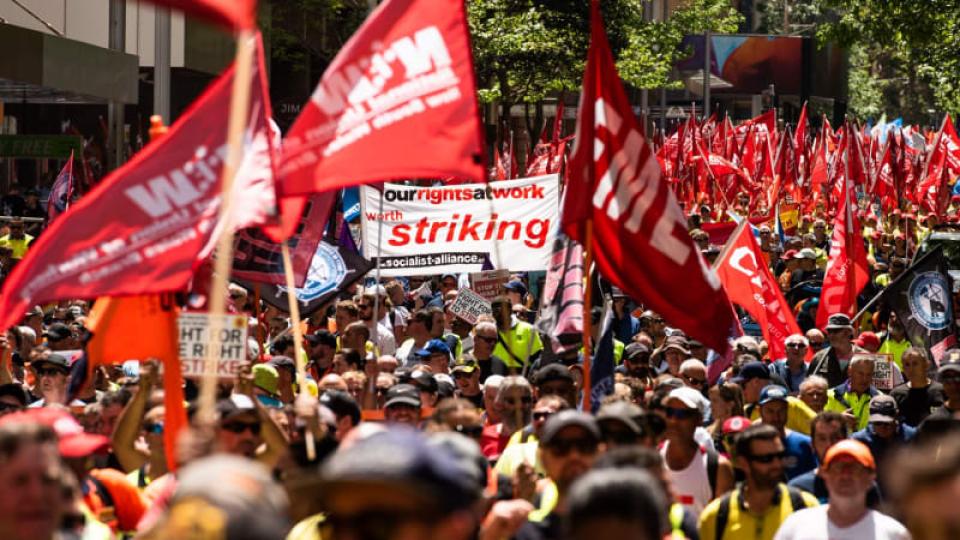Will Labor really ‘change the rules’?

Most workers cannot wait to get rid of this dreadful federal Coalition government. But fewer believe that a Bill Shorten-led Labor government will actually change the rules.
Why? Because most remember what the previous federal Labor government did — or didn’t do — for workers.
ACTU president Michele O’Neil is right to point out “Australian workers need a pay rise” and that “the policies of the [Scott] Morrison government have left 40% of people in insecure work, 1 million people underemployed and created 1 million second jobs.”
We also agree that “we need to change the rules so that working people have the power to win real pay rises [and that] in order to do that we need to change the government.”
But we also know what a Labor government will most likely mean in practice, particularly when we read articles like the one in the April 21 Sydney Morning Herald headlined: “Bill Shorten's penalty rates pledge under threat”.
The article lays blame for this on the minor parties in the Senate, saying The Greens, Centre Alliance and Pauline Hanson’s One Nation could challenge Labor’s legislation to restore penalty rates for 700,000 workers.
But what the minor parties want is to ensure that unions cannot trade away penalty rates — and with good reason.
The Labor-affiliated Shop, Distributive and Allied Employees Association (SDA), which covers retail, fast-food and warehousing workers, did just that in deals it negotiated with Coles and Woolworths a few years ago.
The result for workers was substantial wage and penalty rate losses, which led to members challenging their own union in the Fair Work Commission to have these rights restored.
Employees at McDonalds, Kmart and Bunnings are still fighting to overturn these losses, but Labor has so far refused to promise to restore penalty rates for these workers.
Restoring penalty rates, and most other Labor promises, will almost certainly depend on deals with Senate crossbenchers if Labor is elected. This will no doubt provide Labor with an excuse as to why it cannot keep its promises.
But that is all it will be: an excuse.
In 2007, Labor was elected on the back of the ACTU’s mass Your Rights At Work campaign. Despite this, The Australia Institute’s Jim Stanford notes that “the Labor government at the time preserved many of the restrictive labour policy measures that had been implemented by the previous [Coalition] government…
“The basic structure of industrial relations and labour law (rooted in enterprise-level bargaining, with strong restrictions on the scope of bargaining and union activity) was preserved.”
Even when it came to the hated Australian Building and Construction Commission, it took Labor 5 years to wind back legislation, though it never abolished the commission, as unions had demanded.
This was because construction bosses and the corporate media were screaming that the construction unions are “thugs”.
The bosses know they can always pressure Labor to toe the line, more so than unions — unless we are prepared to break the rules.
Yet, as former Geelong Trades Hall Council secretary Tim Gooden notes, once again, “all the trade unions have put their eggs in one basket hoping that Labor will save their arse”.
They have all come behind the ACTU’s Change the Rules campaign — even those that had been willing to challenge Labor — with shop stewards and activists dedicating huge resources to the thinly veiled re-elect Labor campaign.
But unions have little to no plan of what to do when Labor doesn’t deliver what they want.
Without an independent campaign of struggle to win our demands, workers and unions will not win substantial and long-lasting reforms or pay rises.
So is it pointless for militant workers to get involved in the Change the Rules campaign?
Gooden says that socialists need to be involved. We need to be “talking with those workers and providing an alternative that is outside of the Labor framework … we need to win people to the notion that struggling and fighting back is what it will take to win.”
This is the only way we can change the rules.
Mobilised, educated and organised workers have real power — and it’s that power that can win secure jobs and real pay rises.
[Sue Bull is member of the Socialist Alliance national executive. She is also a union educator.]